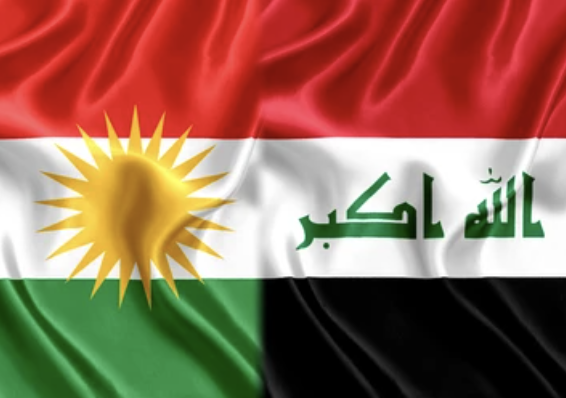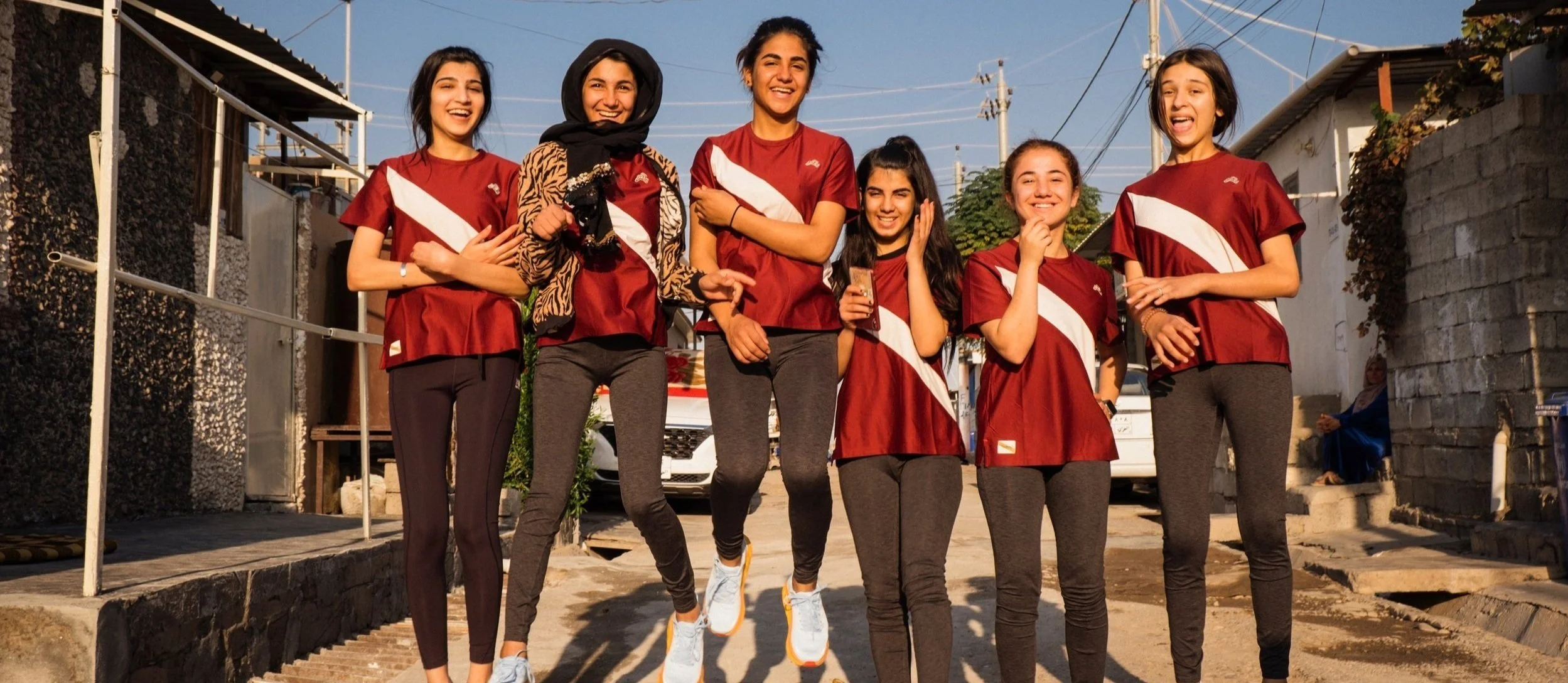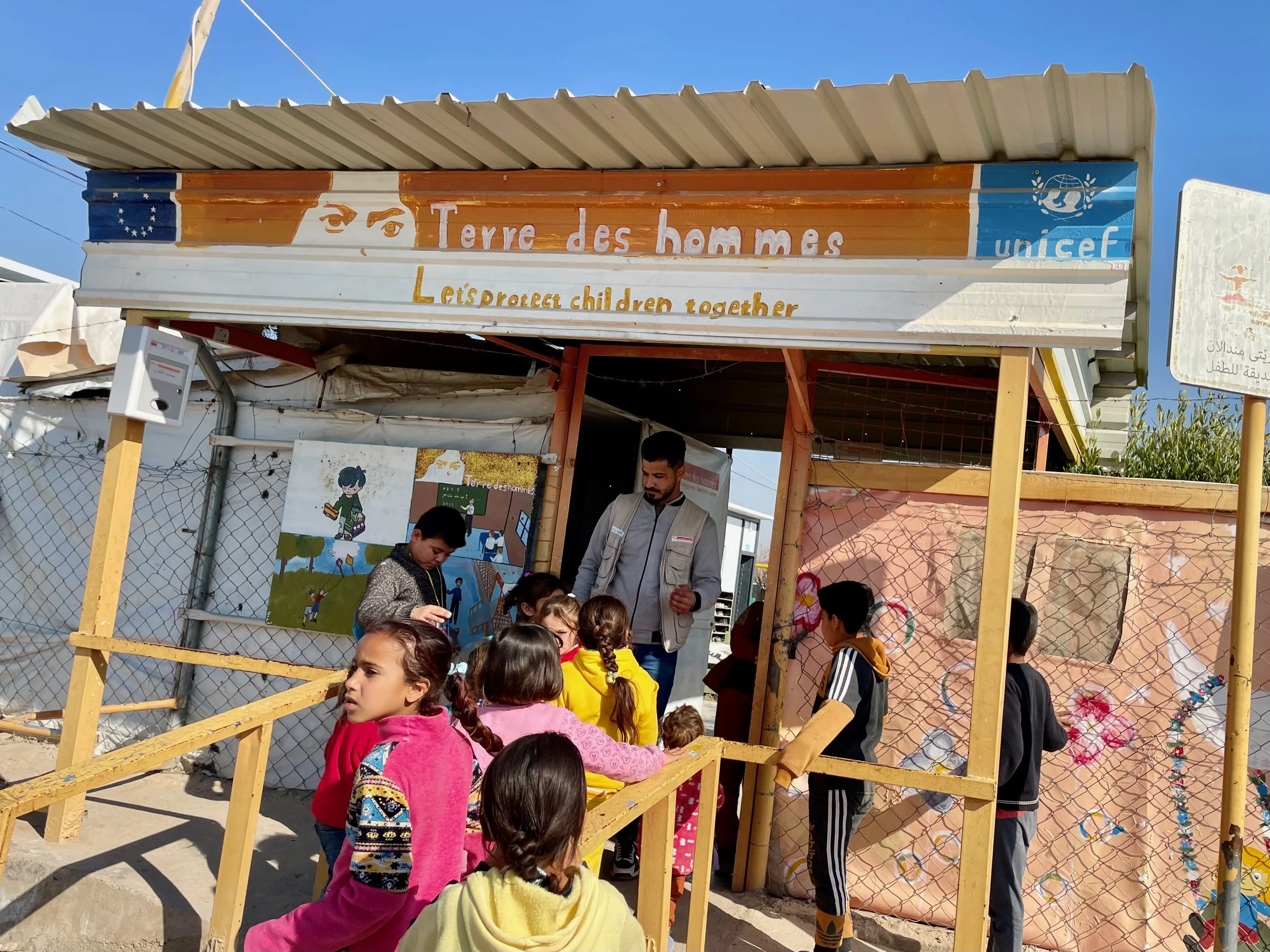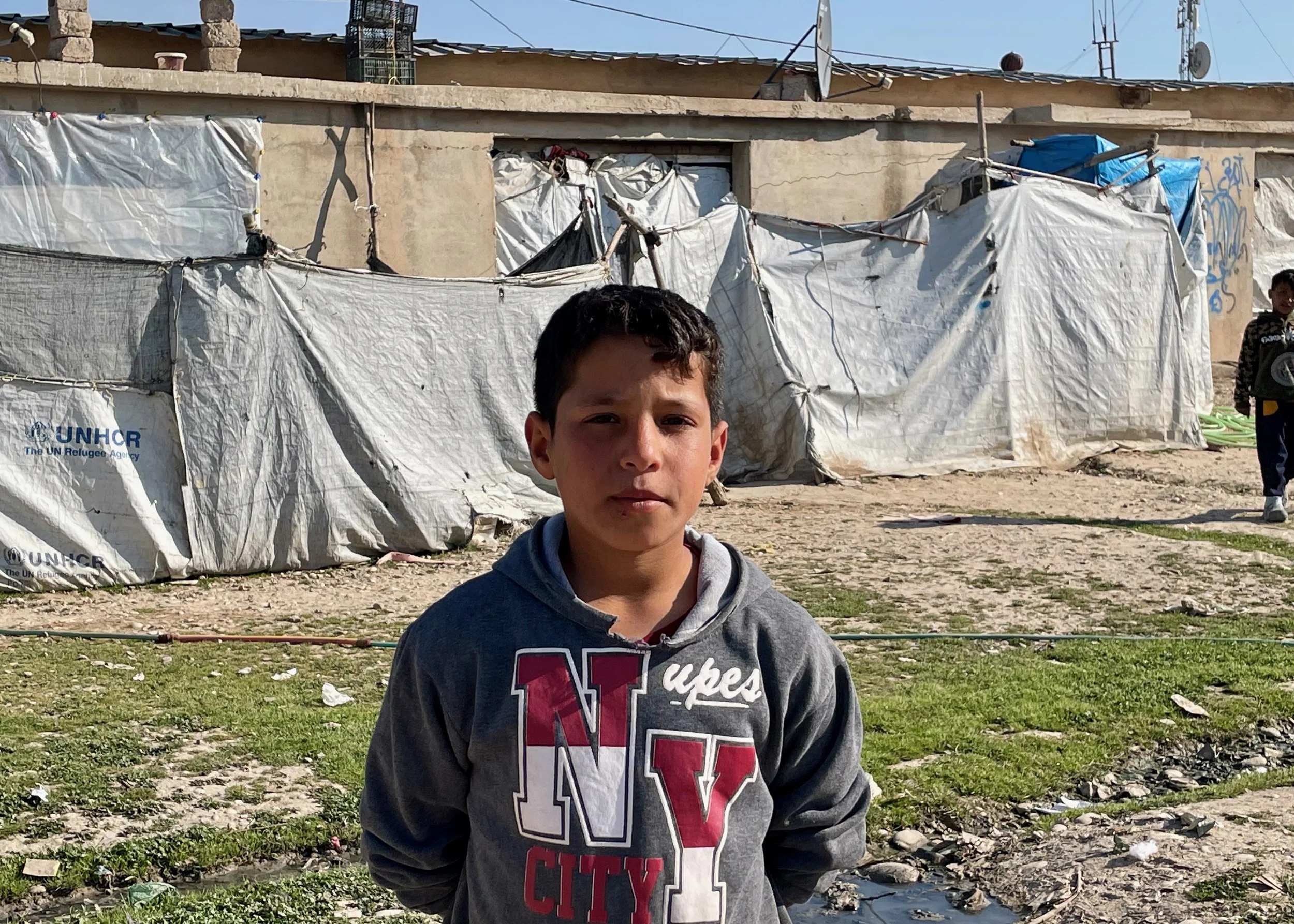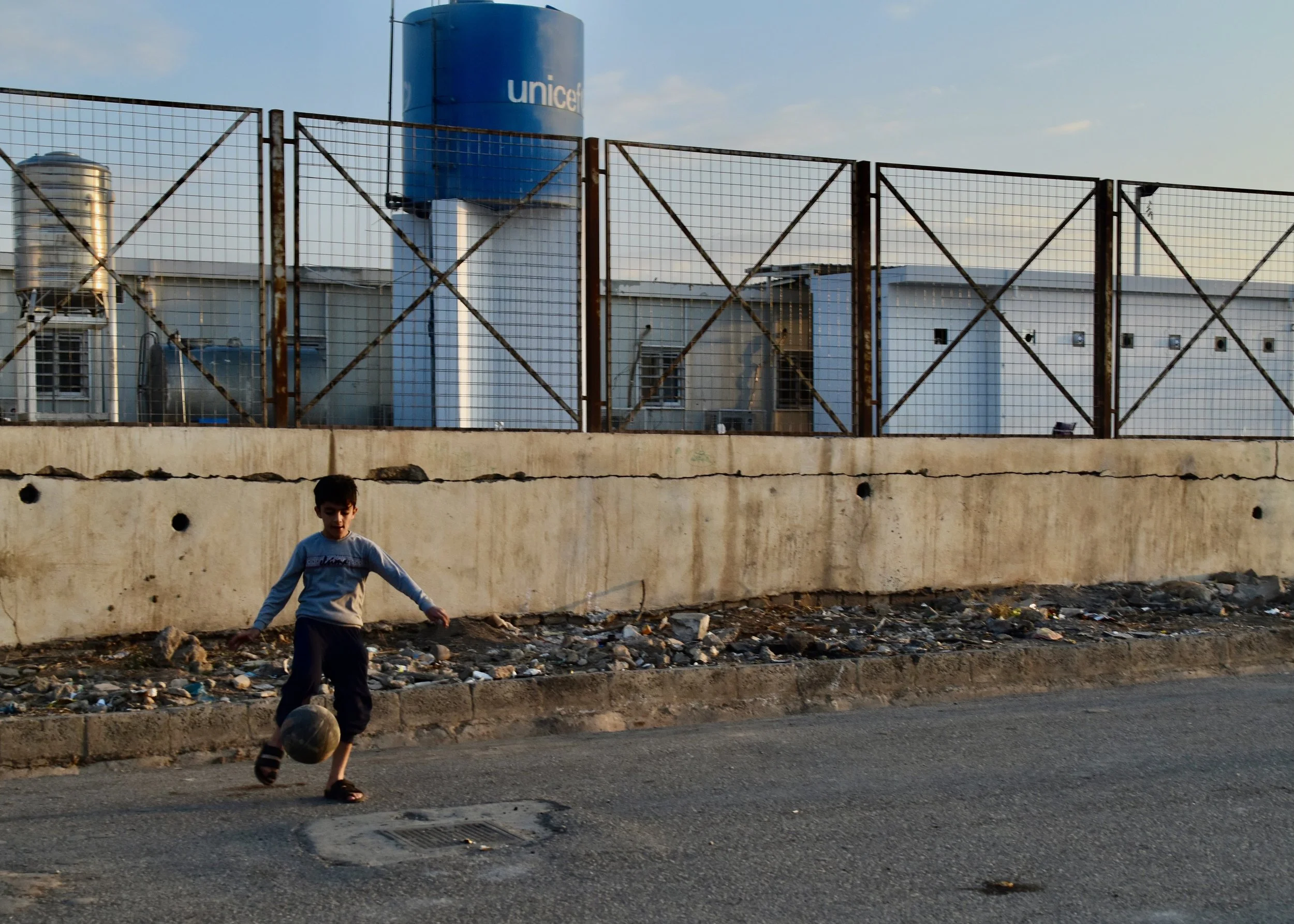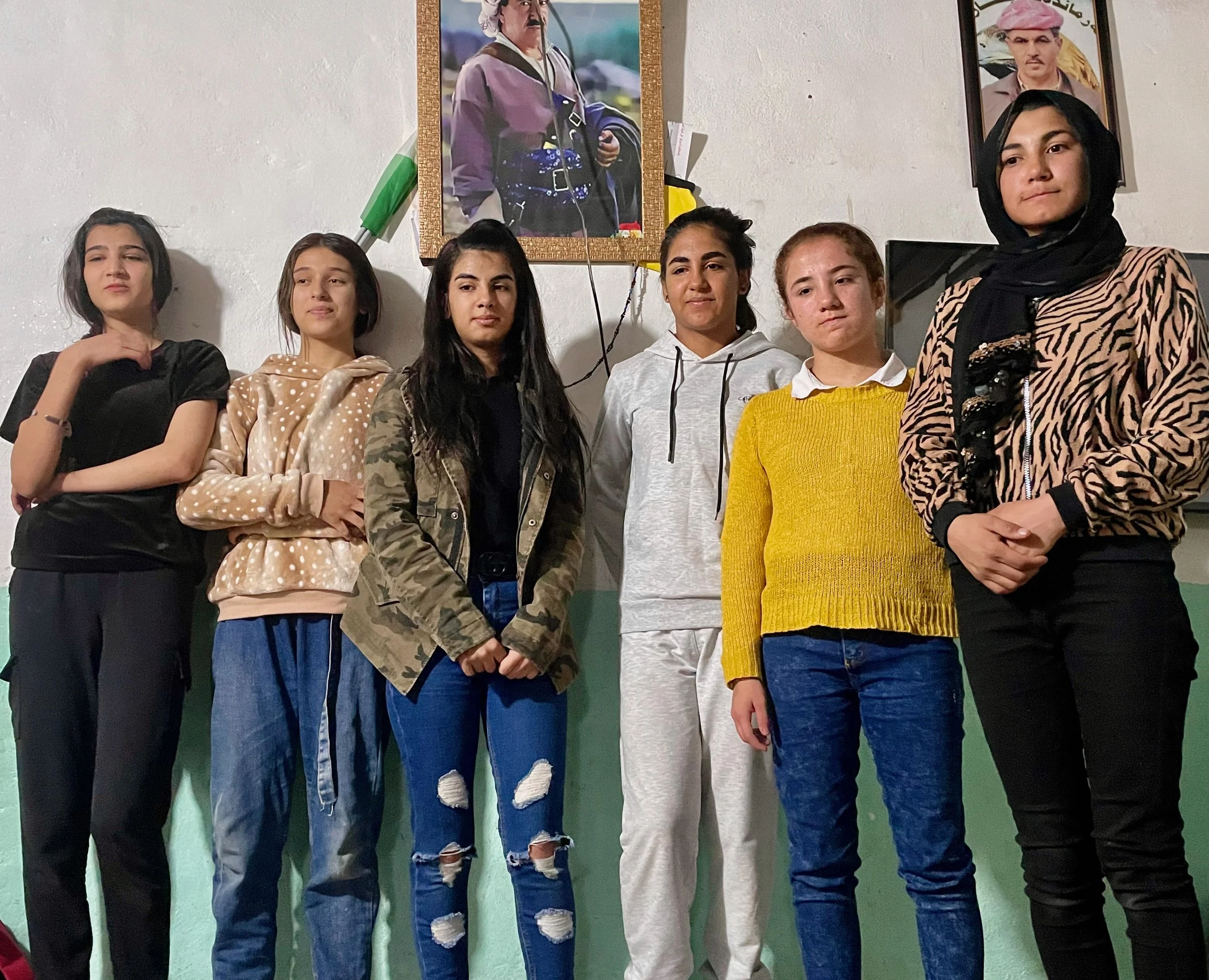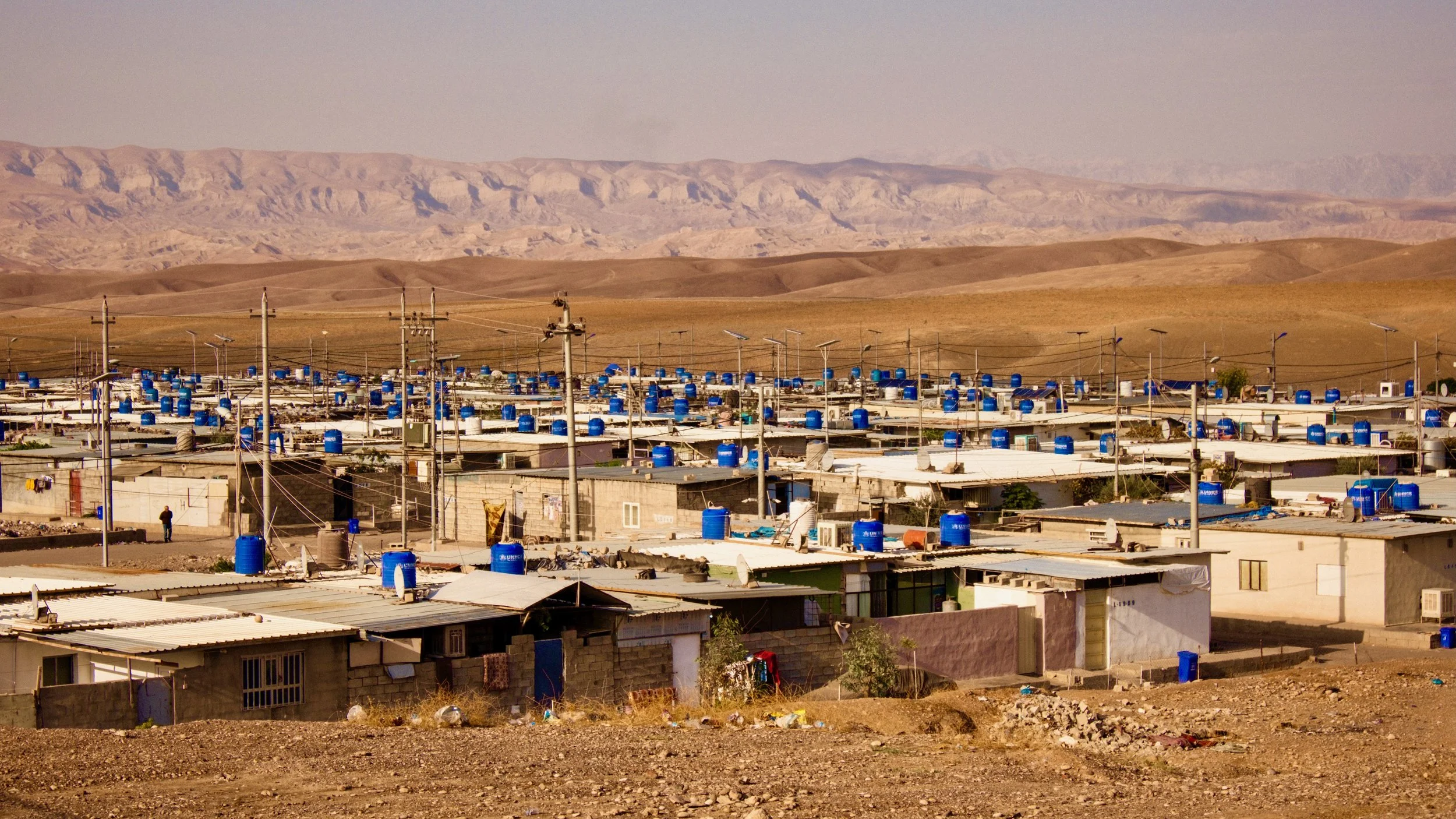Refugees in the Hassan Sham camp outside Mosul. From the beginning, it has largely housed people suspected of close ties to ISIS, including wives, children and extended family of the fighters. Their return to their homes would additionally involve the risk of aggression from local militias.
THE REFUGEE NEED
Over 800,000 people (20 percent of the population) in Iraq live in refugee camps due to the wars in the region. In Darashakran, more than 75 percent of children between the ages of 12 and 17 were not enrolled in the formal education system.
The UNICEF child learning center in the Hassan Sham Refugee Camp near Mosul, Iraq.
From the beginning, the Hassan Sham Camp has largely housed people suspected of close ties to ISIS, including wives, children and extended family of the fighters. Their return to their homes would additionally involve the risk of aggression from local militias. Because of all of this, the camp operates under a closed regime, meaning its residents are not allowed to leave it to work, earn money, accept charity or for any reason. Children are often unable to start school because their documents are confiscated by the Kurdish security services.
A young boy in the Hansansham Refugee Camp near Mosul, Iraq.
Meanwhile, the conflict in Syria, which led to the creation of the Darashakran Refugee Camp, caused the largest displacement crisis that the world has ever seen, forcing millions to leave everything behind and flee to the neighbouring countries.This camp, less than a hour drive from Erbil, houses about 13,000 Syrian refugees. Conditions in the camp are dire with limited supplies of drinking water, overcrowding, and widespread poverty.
A youngster plays football near the water towers of the Darashakran Syrian Refugee Camp.
The Darashakran camp, spreading over an area of almost 400 miles opened in 2013 refugees. Even though in theory refugee camps are temporary facilities, this has become one of Northern Iraq’s permanent camps. In late 2015, UNHCR launched a ‘tent-free camp’ initiative. In Iraqi Kurdistan summers and winters were harsh, with temperatures falling from forty degrees Celsius in summer months to below freezing in winter — tents could not protect the refugees. In addition to this, with Syria’s situation in flux, the refugees needed a more durable shelter. The tents have been replaced with houses made of concrete blocks, equipped with mattresses and latrines.
A group of girls inside a cinder-block house of the Darashakran Refugee Camp outside Erbil.
Thanks to UNHCR, refugees living in the Darashakran camp have access to safe drinking water and a water network, which allows families to prepare meals and maintain personal hygiene, thus decreasing the risk of disease outbreaks. But the government has stripped people living in the camp of all their freedoms. While Darashakran residents may leave and reenter the camp throughout the day and possibly seek employment in Erbil, only the luckiest manage to do so. The majority faces a high degree of discrimination when trying to enter the job market, and they do not receive any income. They are entirely at the mercy of charities for essential supplies such as food, let alone enjoyable experiences.
The Darashakran Refugee Canmp outside Erbil is home to more than 13,000 Syrians on 400 square miles.
